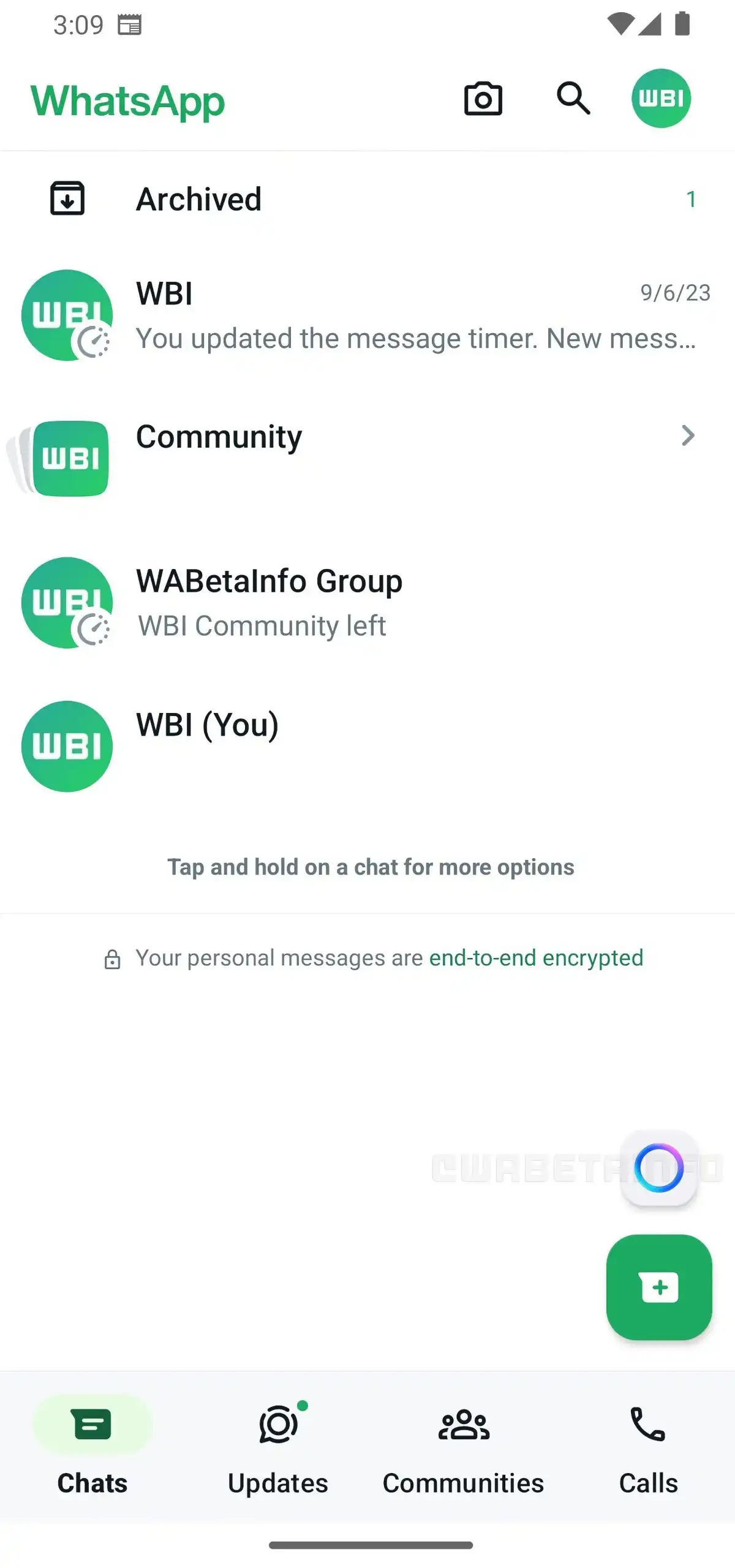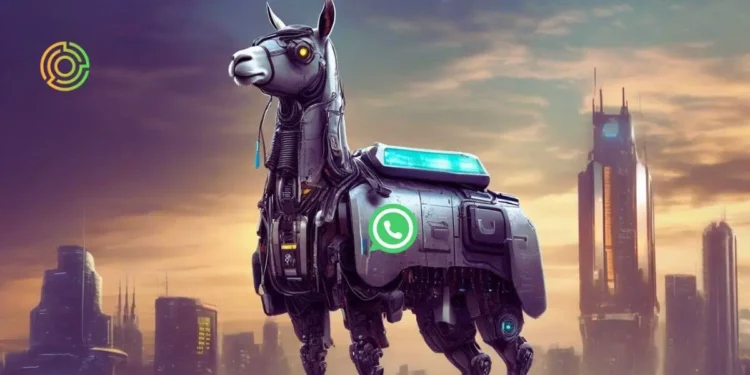In the ever-evolving landscape of messaging applications, WhatsApp has taken a bold step by introducing an AI-powered chatbot within its platform. This innovative move aims to redefine how users interact within the app, providing a seamless experience without the need to navigate elsewhere for information. Let’s delve into the details of this groundbreaking development.
WhatsApp’s Innovation in Messaging
WhatsApp has been a frontrunner in the messaging app industry, constantly seeking ways to enhance user experience. The recent revelation of an integrated chatbot reflects the app’s commitment to staying ahead in the competitive market.
Integration of ChatGPT in WhatsApp
The integration of an AI-driven chatbot signifies a paradigm shift in how users engage with the app. WhatsApp is no longer just a platform for text-based conversations; it’s evolving into a multifaceted tool that caters to diverse informational needs.
WhatsApp’s Chatbot Evolution
Beta Version Revelation
The beta version of WhatsApp has unveiled a conspicuous new icon positioned above the button for creating a new conversation. This icon serves as a direct gateway to an AI-powered chatbot, sparking curiosity about its capabilities and functionalities.

Icon Placement for Easy Access
The strategic placement of the chatbot icon ensures users have quick and convenient access without navigating away from their usual interaction zones. This user-friendly approach aims to seamlessly integrate the chatbot into the daily WhatsApp experience.
Collaboration with Meta and Microsoft Bing
In September, Meta announced its collaboration with Microsoft Bing to create an AI chatbot using the LlaMa 2 language model. This chatbot is designed to provide natural language responses, utilizing web search results for immediate answers.
Introduction to LlaMa 2 Model
The chatbot’s foundation lies in the LlaMa 2 model, developed by Meta to rival advanced AI models like GPT-4. While specific features and intelligence levels remain undisclosed, the integration of LlaMa 2 suggests a robust and sophisticated conversational AI.
Functionality of WhatsApp’s AI Chatbot
Natural Language Processing
WhatsApp’s AI chatbot is poised to compete directly with ChatGPT, offering users a conversational interface for inquiries and actions. The incorporation of natural language processing ensures a user-friendly experience, bridging the gap between human interaction and technology.
Comparison with ChatGPT
As WhatsApp ventures into the realm of AI-driven conversations, a natural comparison arises with existing models like ChatGPT. The battle for supremacy in providing accurate and relevant information unfolds, setting the stage for a new era in digital communication.
Use Cases and Actions
Users can leverage the chatbot for various purposes, including asking questions and performing specific actions. The scope of functionalities will likely expand as more users gain access, promising a versatile and dynamic tool within the app.
Gradual User Access Expansion
Currently available in the beta version (2.23.24.26), the chatbot’s access is limited to a select group of users. However, insights from Wabetainfo hint at a broader rollout in the coming weeks, ensuring more users can benefit from this innovative feature.
Meta’s AI Expansion Plan
Integration in WhatsApp, Instagram, and Messenger
Meta’s broader plan includes integrating AI assistants powered by Llama 2 across WhatsApp, Instagram, and Messenger. This strategic move aims to create a unified AI experience across Meta’s platforms, challenging the dominance of traditional search engines.
Llama 2-powered Assistants
These AI assistants, fueled by the capabilities of Llama 2, are envisioned to answer queries, perform web searches with Bing, and even generate images from text. The potential disruption to the traditional information search paradigm raises questions about the future of online information retrieval.
Impact on Google’s Search Dominance
As Meta expands its AI chat capabilities globally, the position of Google in the information search landscape faces a significant challenge. The integration of AI into widely used platforms threatens to reshape how users seek and obtain information online.
Challenges and Considerations
Reliability Concerns
While the introduction of AI chatbots opens new avenues for information access, concerns about their reliability emerge. Ensuring these systems provide accurate and trustworthy information becomes paramount to prevent misinformation and potential chaos.
Potential Information Chaos
The global reach of messaging apps raises the stakes for AI reliability. Inaccurate information disseminated through these platforms could lead to international confusion and misinformation, emphasizing the need for rigorous testing and oversight.
International Implications
The deployment of AI chatbots on a massive scale carries international implications. Meta’s plan to expand these features globally necessitates careful consideration of cultural nuances and potential challenges in different regions.
Additional Features in WhatsApp
Introduction of Voice Chats
Beyond the AI chatbot, WhatsApp introduces additional features to enhance user interaction. The new voice chat for groups resembles the functionality of Twitter Spaces, allowing users to engage in dynamic conversations with ease.
Similarity to Twitter Spaces
The voice chat feature enables users to initiate conversations from the top of the screen, joining or listening at their convenience. This innovation adds a new dimension to group interactions, making WhatsApp a more versatile platform for communication.
User-Friendly Controls and Accessibility
WhatsApp ensures that users can seamlessly navigate through voice chats while simultaneously participating in other conversations or accessing different sections of the app. The user-friendly design aims to enhance overall usability.
OpenAI co-founders Sam Altman and Greg Brockman to join Microsoft
Conclusion
In conclusion, WhatsApp’s integration of an AI chatbot represents a pivotal moment in the evolution of digital communication. Meta’s ambitious plan to deploy AI across its platforms signals a shift in how users interact with technology. However, the success of these innovations hinges on addressing reliability concerns and navigating potential challenges on a global scale.
FAQs
Is the AI chatbot available to all WhatsApp users?
Currently, the chatbot is in the beta version and accessible to a limited group of users. It is expected to roll out to a broader audience in the coming weeks.
How does WhatsApp’s chatbot differ from other AI models like ChatGPT?
WhatsApp’s chatbot, based on the LlaMa 2 model, aims to provide natural language responses and compete directly with existing models like ChatGPT.
What other features has WhatsApp introduced alongside the AI chatbot?
WhatsApp has introduced voice chats for groups, resembling the functionality of Twitter Spaces, enhancing the overall user experience.
How does Meta’s plan to integrate AI across platforms impact traditional search engines like Google?
Meta’s plan poses a challenge to Google’s dominance in information search, as AI-powered assistants become more integrated into widely used platforms.
What concerns arise with the deployment of AI chatbots on a global scale?
Concerns include the reliability of information, potential chaos caused by misinformation, and the need for careful consideration of cultural differences in different regions.
Follow us on our social networks and keep up to date with everything that happens in the Metaverse!
Twitter Linkedin Facebook Telegram Instagram Google News Amazon Store











































